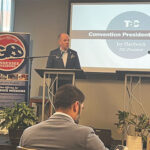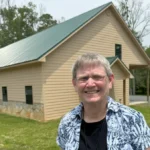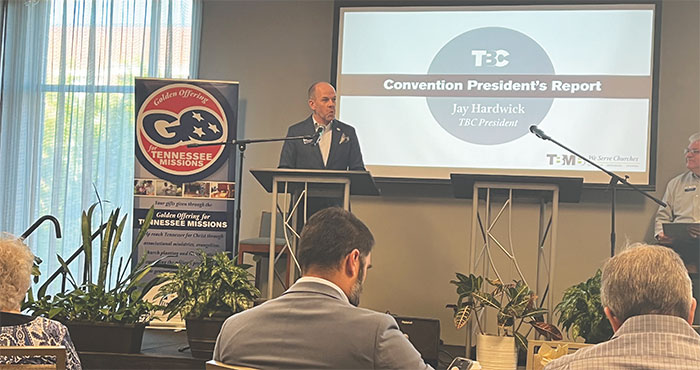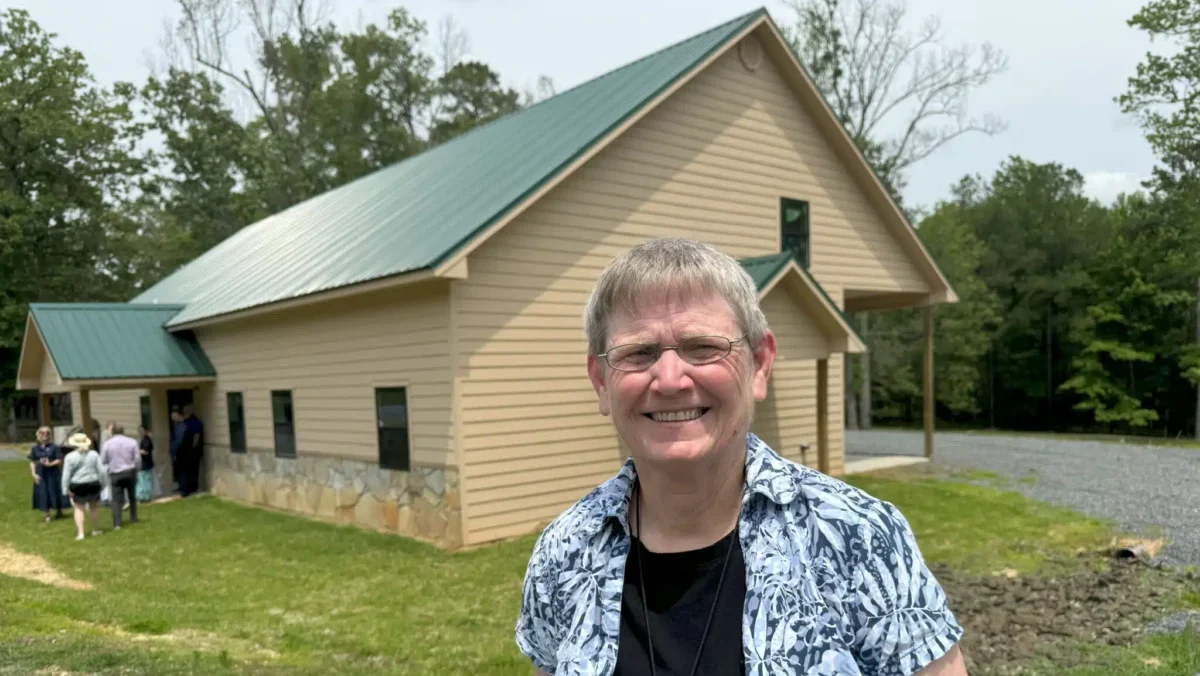Randall Wallace is considered by many in the theatrical industry to be one of the greatest screenwriters, film directors and producers of our time.
The movie “Braveheart” was nominated for 10 Academy Awards and won five, including Best Picture and Best Director. It also won a Golden Globe Award and four BAFTA Awards. Wallace went on to write the screenplay for the blockbuster hit “Pearl Harbor” and to direct such heavyweight titles as “The Man in the Iron Mask,” “We Were Soldiers,” “Secretariat,” and “Heaven Is for Real.”
‘Unassuming’ inspiration
A New York Times bestselling author of seven novels, Wallace shared the faith-filled story of his journey from Tennessee to the star-studded hills of Hollywood during “Creativity and a Brave Heart: An Evening with Randall Wallace” at 7 p.m. on Tuesday, Nov. 14, in the Entergy Theater at the Gore Arts Complex in Clinton. Wallace’s appearance was courtesy of the Institute for Southern Storytelling at Mississippi College.
Wallace is very unassuming, warm and witty. He was asked about what he wanted to do and say during his visit to Mississippi College.
“I’m getting inspired by being in touch with young people who really want to live their lives for a purpose much larger than themselves,” he said. “That inspires me and really fills me up.
“I want to talk about creativity with them and also keeping that light burning within themselves,” he continued. “As the Bible says, you can gain the whole world and lose your own soul. It also says that the road that leads to destruction is wide but the path to life is narrow. I want to talk about that narrow path and how that path leads to life.”
Wallace grew up in Memphis, noting “Memphis is probably more than a Mississippi town than it is a Tennessee town.”
‘The Passion of the Christ’ sequel
Wallace shared about one of his current projects. “The latest thing I’m working on, and probably the most impactful, is that I’m working with Mel Gibson on the sequel to ‘The Passion of the Christ,’ about the resurrection. Growing up in a Baptist church in Memphis, the resurrection has been the deepest mystery and the most meaningful part of the faith for me. This is a chance for us to explore that, to see where it’s going to go. It’s mysterious and incredibly exciting.”
Wallace views his life as a calling.
“When I was about 16 or 17, I discovered music as a way to grow closer to God. It was an expression for me of creativity, of love and joy. And I talked with the pastor of my home church when I majored in religion in college. I went to (Duke) divinity school. I was sitting down with my pastor and he said, ‘Do you feel the call to be a pastor?’ I said, ‘Honestly, I don’t, but I know it’s the greatest call anyone can have. And he said, ‘You’re wrong. The greatest call anyone can ever have is the one God has for you.’ It’s one of the greatest things anyone ever told me.”
Where the limelight began
“Braveheart” was the movie that put him in the limelight.
“I wrote the screenplay without any given actor in mind. I wanted to tell that story. Then the studio I was involved with said, ‘Who do you think should play William Wallace?’ The strange thing was that there was only one actor in the whole world that I could imagine playing him, and that was Mel Gibson. We sent him the screenplay. He eventually read it, and I had a meeting with him and could tell he was interested, but he hadn’t said yes yet. I took a trip to Scotland and found battle reenactors and sets, came back, and had a meeting with him. At that meeting, he said, ‘I’d like to direct that myself.’ That had never been brought up. He said, ‘How would you feel about that?’ I said I would support that. And our friendship was sort of born in that moment.”
“The Man in the Iron Mask” followed “Braveheart,” and it was Wallace’s first major directing project. It starred Leonardo DiCaprio, John Malkovich and others.
“I was certainly standing in the shadow of all the other directors who had made movies that I loved,” Wallace said. “My goal was I wanted to make the kind of movie that I had seen when I was in my late teens, when I would walk out of a movie theater and say to myself, ‘My life will never be the same because of what I just saw.’ I wanted my movies to be that kind of movie. That was always what I was aiming at, and that was what I always promised the cast and crew we were aiming at. It was movies like ‘A Man for All Seasons,’ ‘Spartacus,’ or, even say, ‘The Sound of Music.’”
‘Past the politics’
Wallace went on to write and direct the Vietnam movie “We Were Soldiers.” “I wanted to get past the politics that had torn everyone up and focus on the families, the men who went, the brothers, sisters, parents, children that they left behind. I wanted to make it about them.”
When it comes to the latitude Wallace gave his actors in creating a character, he said, “You choose the people that you feel are in the essence of the characters you want them to play. Then it’s almost easy. I don’t start by telling them how I want them to perform the scene. The screenplay tells them how. I start with seeing what their instincts are. I’ve chosen people that I believe have the right instincts.
“The great ones make you stand there and watch what happens. You feel it’s a divine thing. It’s sort of a miracle. Margot Martindale is one of the actors I’ve worked with more than once, and we sort of have a pact that I can’t make a movie without calling her. But John Malkovitch, Sam Elliot, Mel Gibson — those are actors I would just jump at the chance to work with anytime, anywhere.”
EDITOR’S NOTE — This story was written by Tony Martin and originally published by The Baptist Record.








